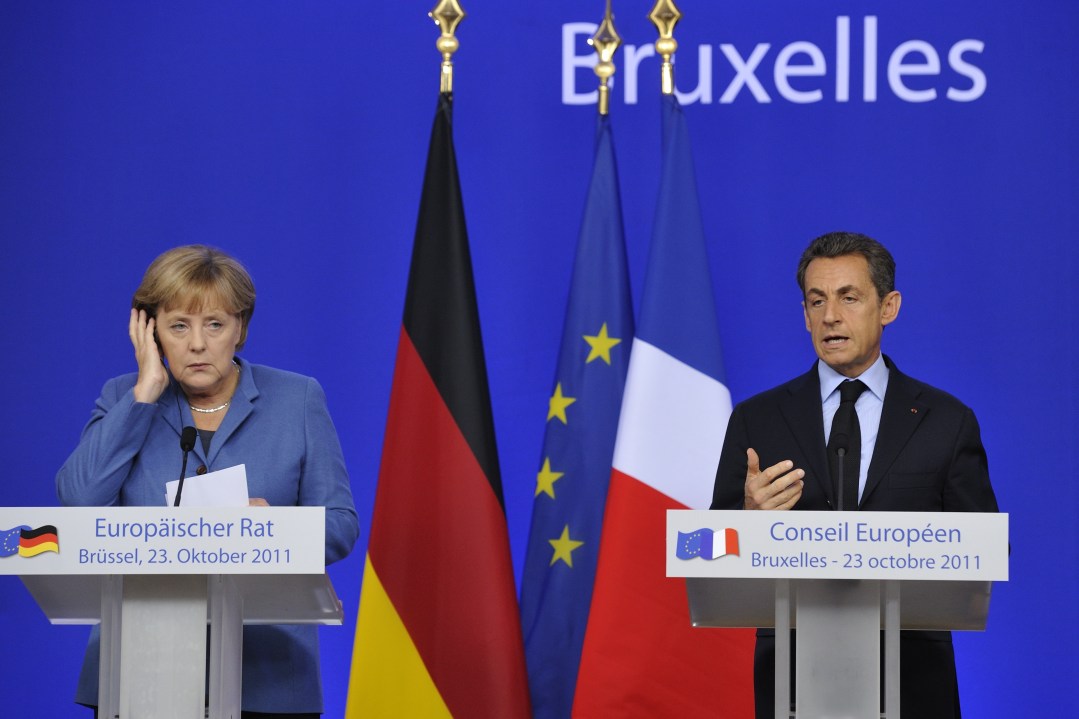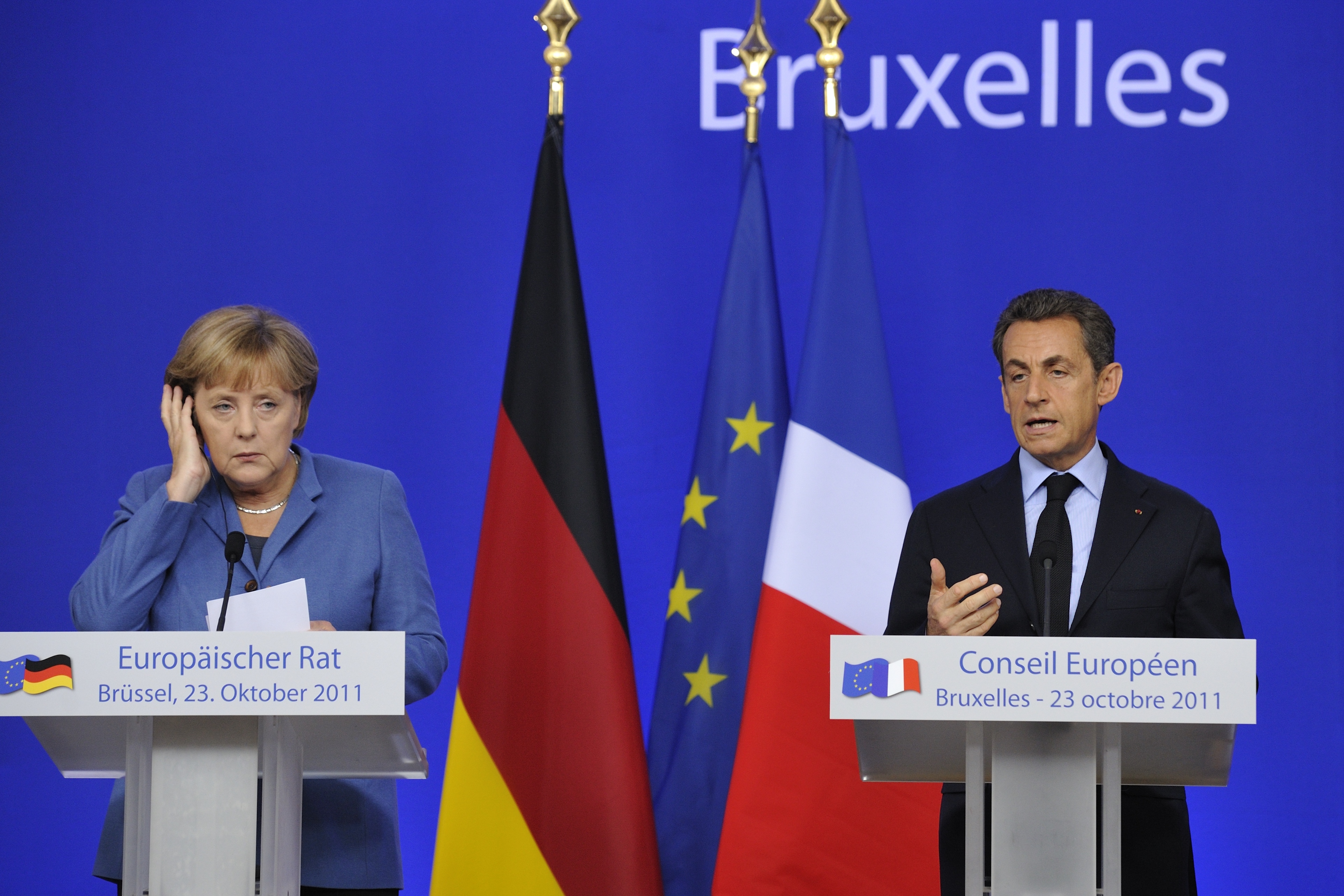 Who’d have thought it? A group of 27 world leaders — each with their own agendas,
goals, rivalries and pathologies — finding it difficult to reach agreement with one another? But that unlikely situation is exactly what is happening in Europe right now. Today’s summit was,
like summits before it, supposed to be the one that finally repaired the disintegrating eurozone. But while the roadmap will have some of its contours filled in before tomorrow — including, perhaps, a €110 billion bailout package for
Europe’s banks — there will still be too many remaining uncertainties to march ahead. Angela Merkel’s confrontations with her German parliamentary colleagues aren’t helping the matter. And neither, as Clarissa
wrote yesterday, is the potential collapse of
Silvio Berlusconi’s government.
Who’d have thought it? A group of 27 world leaders — each with their own agendas,
goals, rivalries and pathologies — finding it difficult to reach agreement with one another? But that unlikely situation is exactly what is happening in Europe right now. Today’s summit was,
like summits before it, supposed to be the one that finally repaired the disintegrating eurozone. But while the roadmap will have some of its contours filled in before tomorrow — including, perhaps, a €110 billion bailout package for
Europe’s banks — there will still be too many remaining uncertainties to march ahead. Angela Merkel’s confrontations with her German parliamentary colleagues aren’t helping the matter. And neither, as Clarissa
wrote yesterday, is the potential collapse of
Silvio Berlusconi’s government.
Into this maelstrom goes David Cameron, who faces the task of being engaged but not too involved. Engaged, because the tremors ripping through the eurozone will also be felt in Britain. Not too involved, because this is an unhappy time — both fiscally and politically — to start hurling British cash onto the bonfire.
But could British cash be hurled nevertheless? The depth of our involvement basically depends on the depth of the International Monetary Fund’s involvement — and there are some signs that that might increase. Luxembourg’s Jean-Claude Juncker last night said that, “It’s desirable to include the IMF in any European solution to a maximum extent.” And the organisation has responded cooingly to his desires. They are talking about either buying up some European debt, via the “special purpose investment vehicle” being finalised by European leaders, or administering the actual vehicle itself. Whether this means that we will be forced to eat more European debt soufflé, it’s hard to say; but it’s a possibility. As with everything else today, details are a little thin on the ground.
And a final question: will any of this work? I’ll leave CoffeeHousers to mull over the answer, expect to say that it doesn’t look promising. As Stephanie Flanders points out in a useful blog post for the Beeb, much depends on growth, which in turn depends on the whole range of unlikelihoods that she details. Sarkozy, Merkel, Berlusconi et al had better pencil in some more summits.







Comments